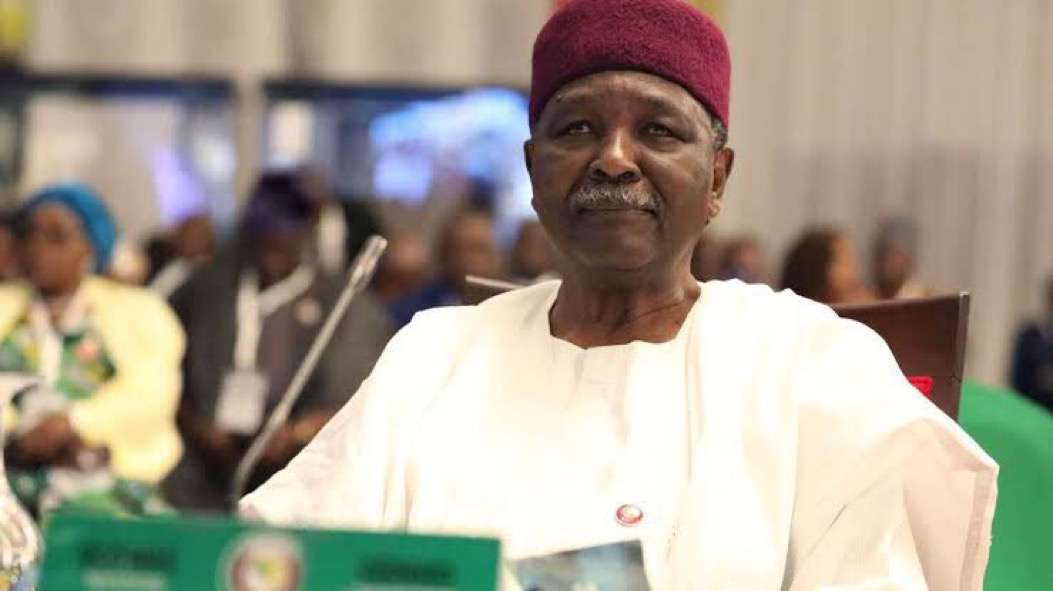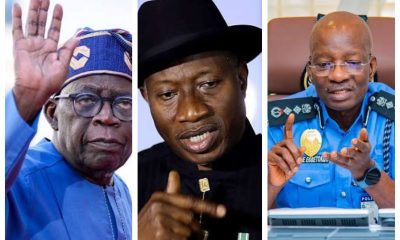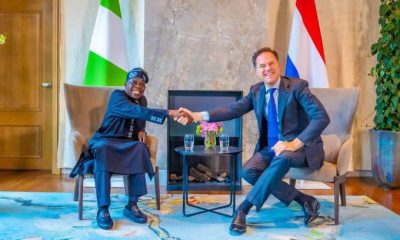Politics
Experts back Gowon on ECOWAS

Faults Tinubu’s policy on military coups in Mali, Niger, others
Following Gen. Yakubu Gowon’s position on the lingering deadlock in ECOWAS over the military coups that took place a couple of years ago in four member-states, several experts in diplomacy and international relations have not only backed the former head of stated, but also criticized President Bola Tinubu’s handling of the matter as the chairman of the subregional body. The experts believe that President Tinubu’s lack of diplomatic tact and leadership created the present impasse in the region.
The last military coup in the region, which took place in Niger Republic last year, almost coincided with President Tinubu’s assumption of office, and his knee-jack reaction, just like the twin domestic policies of subsidy removal and floating of the naira, without proper consultations, have, rather than resolve the problem, has escalated it resulting in the threat by these four countries to pull out of the 16 members organisation.
Speaking on the development, Dr. David Obaremo, a retired history teacher, told Business Hallmark that what General Gowon has done is a display of statesmanship.
“Remember that Gowon was one of principal figures in the formation of the regional body in 1975, so he can not close his eyes and allow one of his signature legacies to be destroyed by current leaders of the sub region, who are neither qualify to impose sanctions because some of them came through military coup itself or rigged election and illegitimacy.”
Perhaps concerned about his and his class of West African leaders’ legacy, which established the Economic Community of West African States (ECOWAS) in 28 May, 1975, the former head of state, General Yakubu Gowon. (retd) has expressed his displeasure at the state of affairs in ECOWAS, especially the sanctions imposed on three member states- Niger, Mali and Burkina Faso, including Guinea – currently under military juntas. The war time Nigerian leader has asked ECOWAS to lift sanctions imposed on the three countries. He said “all West African leaders” should “immediately consider the lifting of all sanctions that have been imposed on Burkina Faso, Guinea, Mali and Niger.”
Gen. Gowon, widely considered along with Hamani Diori of Mali and Gnnasigbe Eyadema of Togo as principal architects of the sub regional body, expressed his concerns about recent developments in the regional body in an open letter addressed to Heads of State and Government of ECOWAS Member States.
The letter was dated 13 February, 2024. In the wake of the coups in West Africa, ECOWAS imposed economic sanctions on countries that had been taken over by the military as a deterrent.
Gowon said it saddens him to learn that ECOWAS is threatened with disunity following the announcement by Burkina Faso, Mali and Niger to withdraw from the subregional bloc.
The action of the three countries in withdrawing from ECOWAS to form a confederation, according to General Gowon, will have far-reaching implications for the ordinary citizens, who have been the major beneficiaries of regional integration.
He also implored the three nations to rescind their decision to withdraw from the bloc, while imploring all 15 member states to hold a summit to discuss the future of the community, regional security and stability, as well as the roles of the international community given the current geopolitical context.
“Therefore, on behalf of all the founding fathers of the Community and myself, I urge the ECOWAS Authority of Heads of State and Government, including the leaders of Burkina Faso, Mali and Niger, to put aside their differences and reunite for the peace, stability and prosperity of our sub-region,” the letter read.
Dr. Gowon, as the other only surviving founding leader, noted that whatever may have been the shortcomings of the subregional bloc, it has made several major accomplishments including trade liberalisation, the right of West Africans to live legitimately in any country within the community, as well as successful peacekeeping operations.
“ECOWAS is more than a coalition of States, it is a community established for the good of our peoples, based on shared history, culture and tradition. Neither my generation nor present or future generations will understand or forgive the breakup of our Community,” he said.
Dr. Obaremo further stressful the need for current leaders to know that the world is changing and that it is down easier to destroy than to build.
“I often wonder how we can allow governance to degenerate to gutter level where by “agbero” mentality defines both foreign policy and public policy not only in individual member states but also within the sub regional body. I had expected Tiinubu to get quality intellectual feedback from the Nigeria Institute of International Affairs! But where is NIIA today?”
Reacting to Gowon’s concern, Prof. Adeagbo Moritiwon said Gowon should be commended for speaking out.
“The way Tinubu- and other ECOWAS leaders responded to the coups and the subsequent sanctions showed that they didn’t and still don’t understand international politics and its dynamics. It showed that the regional body did not have the right think tank to proffer quality advice.”
He urged ECOWAS leaders to retrace their steps and woo the three countries under sanctions and, which have, exited the body..
About ECOWAS
The Economic Community of West African States (ECOWAS; also known as CEDEAO in French and Portuguese) is a regional political and economic union of fifteen countries located in West Africa. Collectively, these countries comprise an area of 5,114,162 km2 (1,974,589 sq mi) and have an estimated population of over 424.34 million.
ECOWAS is widely considered one of the pillar regional blocs of the continent-wide African Economic Community (AEC), the stated goal of ECOWAS is to achieve “collective self-sufficiency” for its member states by creating a single large trade bloc by building a full economic and trading union. Additionally, ECOWAS aims to raise living standards and promote economic development.
The union was established on 28 May 1975, with the signing of the Treaty of Lagos, with its stated mission to promote economic integration across the region. A revised version of the treaty was agreed and signed on 24 July 1993 in Cotonou, the largest city in Benin.
ECOWAS’s fundamental principles rely on equity, inter-dependence, solidarity, co-operation, nonaggression, regional peace, promotion of human rights, and economic and social justice.
Notably among ECOWAS’s protocols and plans are the ECOWAS Free Movement of Persons, Residences and Establishment Protocol and the Ecotour Action Plan 2019–2029. The Free Movement of Persons Protocol permits citizens the right to enter and reside in any member state’s territory, and the Ecotour Action Plan aims to develop and integrate the tourist industry of each member state.











